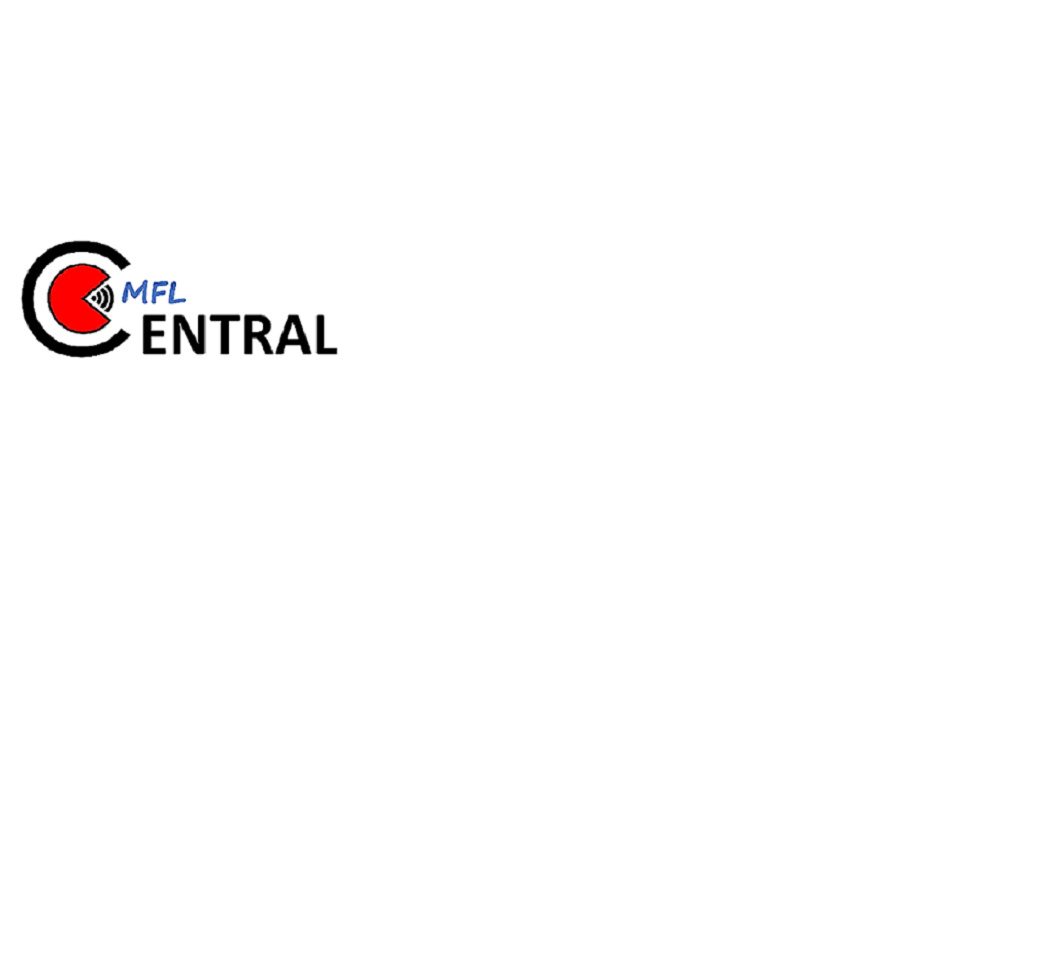Rethinking Ofsted: The Need for Collaborative School Monitoring and Support
- Gaelle Launay-Hughes

- Sep 2, 2023
- 7 min read
Updated: Sep 8, 2023
I hesitated about writing this post, because when I started my blog, I wanted it to be a positive platform where I could share my experience (with the hope that someone may be interested in reading about it). With schools about to re-open for the new academic year, I did not want to send waves of negativity out there. However, as teachers across the country will be involved in training days, they will most probably hear the acronym Ofsted mentioned 10 times per minute, so I decided I would share my own experience of Ofsted and my own thoughts about it. Let me be clear, my intention is not to launch into a tirade against Ofsted, and I sincerely hope not to offend anyone, including those who work within the organisation. The content of this article is based on my genuine experiences, and I aim to shed light on a system that I believe is in need of reform. I recognise that others may not share my perspective, and that's perfectly valid.

Everyone agrees that ensuring the evaluation and monitoring of school performance is of paramount importance. Parents and taxpayers rightfully demand the highest standards of education for every child in the UK, and it is crucial that schools are held accountable for achieving these standards. Nonetheless, from my personal experience, I remain unconvinced that sending a team of inspectors for a brief visit to a school is the most effective method for obtaining an accurate evaluation of the school or for raising educational standards.
I have been through numerous inspections in my career and had the pleasure of meeting several diligent and professional inspectors. However, there have been instances that left an indelible mark on me, casting a shadow over the inspection process and its underlying intentions. Let me start with a couple of anecdotes.
At the end of the first day of a rigorous three-day inspection, a meeting had been scheduled with one of the inspectors and the Heads of Departments (HoDs). We all sat there, our minds racing with the thought of ‘stuff’ we needed to do over the next couple of days. When the inspector finally arrived, more than half an hour behind schedule, she didn't offer a single word of apology for her lateness. Instead, she greeted us and initiated a little game of "Guess the HoD's subject", which consisted in her attempting to guess our respective subjects just by looking at our faces. She did not get a single one of us right (this says a lot about her ability to pass judgement). When we got to my turn, and I revealed that I was the head of Modern Foreign Languages, her response was bewildering: "Oh? You're French? I have a French friend; we often go fruit-picking in fields, and I call her as my 'French peasant'." It might come as a surprise to you, but I didn't find this comment remotely amusing. I was exhausted, stressed, and taken aback by the direction this meeting was taking. I cannot recall the specifics of our subsequent discussion, but what has lingered in my memory is that inspector's attitude when her role was to make a professional judgment about my school.

The second anecdote has had a profound impact on me, and sharing it now feels like a cathartic release. This experience has been a long-standing burden, leaving me with a lingering bitterness that persists to this day.
It happened on the final day of another inspection, during a year 7 Spanish lesson. The class comprised a small group of children with special needs and severe learning difficulties. It's essential to note that I shared this class with a colleague who taught them two out of the three weekly lessons, making her their primary teacher responsible for marking. My colleague was known for her rigorous approach and timely marking, so I felt totally confident when the inspector took a look at one of the pupils’ books.
The student whose book he chose was a lovely boy with significant learning challenges, struggling even to write his name due to his difficulties with writing and forming letters. I don’t like boasting, but the lesson went exceptionally well, ticking all the boxes, with students making substantial and demonstrable progress. It felt like the perfect lesson, and I had a strong sense of success. The Teaching Assistant (TA) and I were both confident about the outcome; sometimes, you just have a gut feeling, don't you?
With a spring in my step, I entered the debrief with the inspector. I was a little surprised by the sheepish, almost solemn way he welcomed me into the room. He began his feedback with a rather ominous statement: "First, I want to make it clear that this will not define your entire career." My stomach clenched, and I couldn't quite figure out the significance of those words of caution. He proceeded to highlight all the positive aspects of the lesson, concluding with his remarks about the marking, primarily based on the single student's book he flicked through. He asserted, "There was no evidence of pupil response in the book." I pointed out the thoroughness and timeliness of the marking, but he considered the absence of pupil responses a significant flaw in the lesson, refusing to rate it as outstanding, despite knowing it was deserving of that rating. I asserted that I wasn't responsible for the marking, to which he replied, "I can only assess based on what I see during the lesson." I pressed further, seeking clarity, "So, just to clarify, you're telling me that if it weren't for the lack of pupil response to the teacher's comments, my lesson would have received an outstanding rating?" His response was evasive, "As I mentioned earlier, this is not a reflection of your entire career." And that was it.
I am convinced that the inspector had already formed his judgment before setting foot in the classroom, and there was nothing I could have done that would have changed the outcome. Although a "good" rating is perfectly acceptable, his decision left me utterly devastated and I remember having very dark thoughts following the inspection. What troubled me most wasn't the rating itself, but the injustice of it all. I knew it, and he knew it too, evident from his disclaimer at the beginning of the debrief.
Following that incident, I made a solemn promise to myself. I vowed never to subject myself to another lesson debrief with an Ofsted inspector, and I swore off preparing lessons into the early hours of the morning during inspections.
What I believe is that Ofsted, when they turn up to a school, have already made their judgment, and all they do is look for evidence to support it. Their criteria seem to be ever-changing, tailored to justify their decisions. While some may be outraged by this assumption (again, this is my own opinion), I can't help but think that despite being portrayed as an independent organisation, Ofsted has its own agenda, aiming to push non-"academised" schools towards conformity. I have seen this in one of my previous schools where, only a couple of years after the previous inspection, we went from outstanding to inadequate overnight, from the sublime to the ridiculous. I cannot go into more detail (this would take at least 15 posts), but let’s just say that Ofsted's rationale for the downgrade left much to be desired, with their supporting evidence appearing rather shaky. As an anecdote, during that particular inspection, the spotlight was on our books. It struck me as ironic when one of our young teachers recognised an inspector as her former geography teacher from her own school days. She remembered that he had never bothered to mark their books back then, yet here he was meticulously scrutinising ours.
So, you must have guessed that I do not own an ‘I love Ofsted’ T-shirt. Besides my own experiences, I think that the process is flawed. How could you rate a two-hour film by just watching two minutes of footage? Of course, you could read the reviews, do some research, but to make a full and accurate assessment, you must experience it in its entirety. I cannot believe that these extremely stressful snap inspections and the recommendations that follow are the answer to raising standards to the extent that is needed. In a lot of cases, they compel school leaders to fixate on constantly moving goalposts, thereby exerting unwarranted pressure on their staff to comply with Ofsted's requirements, all the while losing sight of the genuine needs of the children and the broader school community. The prevailing school rating system, as currently employed, offers little in the way of constructive assistance. Ofsted claims that it provides clarity to parents, but does deeming a school inadequate due to a solitary 'issue' when the overall provision is actually good or outstanding truly offer fair and clear feedback?
I think the current system is inherently unfair and should be completely overhauled. Those of you with experience of working in 'Special Measures' schools, are acutely aware of the detrimental impact these ratings have. They not only stigmatise schools but also foster a negative environment that impedes progress and growth. On the flip side, the 'Outstanding' rating can be misleading, suggesting perfection when there may well be underlying issues demanding attention.
In my view, the solution can be summarised in just two words: collaboration and support. Instead of the current model of school inspections, we should transition to an ongoing system of collaborative monitoring. What we truly require are highly skilled and trained specialists who collaborate with schools, offering dedicated support to help them overcome their challenges. This paradigm shift could involve 'inspectors' who provide their expertise to assist schools in addressing specific issues. They would closely monitor progress alongside school leaders and communicate to parents about the mutually agreed upon strengths and areas for improvement.
I know there are plenty of very expensive consultants out there and I acknowledge the presence of Specialist Leaders of Education (SLEs) who already fill this role to some extent. However, what I propose is a comprehensive system where each school is genuinely supported by a dedicated team of well-trained experts who operate in partnership with schools rather than in a judgmental capacity.

After all this, I felt I had to mention that I did meet a very good Ofsted inspector with whom I had one of the most valuable meetings as a Head of Department. He sat down with me, and we looked at my team data together. He highlighted a lot of positive areas that I wasn’t even aware of while also providing me with precise guidance for enhancing the areas requiring attention. This exemplifies the ideal Ofsted inspection process in my view, yet I believe a comprehensive revamp is necessary to achieve this consistently.
To conclude, the Ofsted system, in its current form, has its flaws and can lead to unfair judgments and undue pressure on teachers. A transformation is needed, one that emphasises collaboration and support rather than snap judgments. It's time to rethink the inspection process to ensure that it genuinely serves the best interests of both educators and students, fostering an environment of continuous improvement in our schools. In the meantime, I'd like to extend my heartfelt wishes to all the incredible teachers out there for a successful and exciting academic year ahead.










































Comments